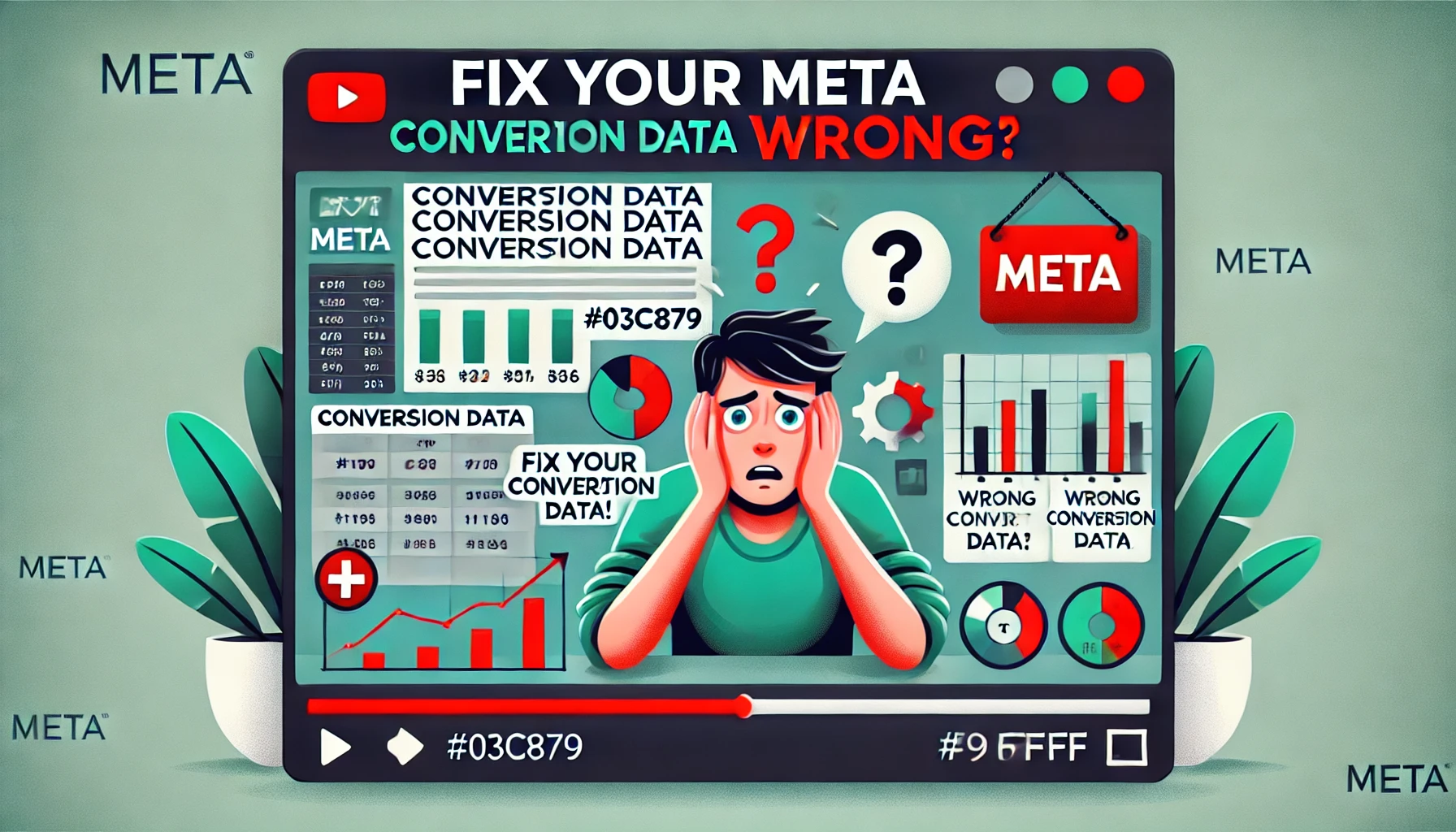Why is Meta’s Conversion Data Wrong?
There are a few common reasons why Meta’s conversion data may not be reflecting reality:
1. The Impact of the iOS 14.5 Update The most significant change came with Apple’s iOS 14.5 update, which introduced stricter privacy measures through App Tracking Transparency (ATT). This update gives users the option to opt out of app tracking, which means that Meta loses a large chunk of conversion data from iOS users. If users opt out, Meta can no longer track their activity across apps and websites, leading to incomplete reporting on conversion events. As a result, your ads might show fewer conversions or miss critical touchpoints in the customer journey.
2. Cookie Rejections Another contributing factor is cookie rejection, which is becoming more common due to increased privacy awareness. Some users outright reject cookies or use ad blockers that prevent Meta from collecting data. Since Meta heavily relies on cookies to track and attribute conversions, this can lead to gaps in the data it reports.
3. Attribution Window Changes Meta has also reduced its default attribution window from 28 days to just 7 days for click-through conversions and 1 day for view-through conversions. This change limits your visibility on how ads impact conversions beyond a short timeframe, making it harder to see the full picture of your campaign performance.
4. Offline Conversions If you’re not properly syncing offline conversion data—such as in-store purchases or leads generated through a phone call—Meta won’t account for these actions in its reporting. This results in incomplete conversion tracking, giving you skewed insights about your campaign’s effectiveness.
Track your lead campaigns with 98% data accuracy and scale your marketing effortlessly.
love LeadJourney
The iOS Update: A Game-Changer in Digital Advertising
The iOS 14.5 update has undoubtedly been the most disruptive event in digital advertising in recent years. By allowing users to opt out of tracking, it effectively limits the amount of data that Meta can gather, leading to “invisible” conversions. This means you could be generating sales or leads that Meta has no way of tracking and reporting back to you.
Before the update, Meta’s algorithms were able to gather more comprehensive data, which allowed them to optimize campaigns better. Now, with limited data, Meta’s machine learning models are less accurate, making it harder to predict and optimize campaign performance.
Why This is a Big Problem for Your Campaigns
If you’re relying solely on Meta’s reported data to make decisions about your campaigns, these issues could be costing you. Without accurate conversion data, it’s challenging to:
- Allocate your ad budget effectively: You may be overinvesting in underperforming campaigns or scaling back on high-performing ones without even realizing it.
- Understand your customer journey: Without clear data on how users are interacting with your ads across channels, it’s nearly impossible to optimize your campaigns for better results.
- Optimize ad creatives and targeting: Poor data insights make it difficult to fine-tune your messaging and reach the right audience at the right time.

Steffen Siesing
CEO Bilanzmanufaktur GmbH
How to Fix Meta’s Data Problems: Enter LeadJourney
So, how can you address these issues and regain control of your conversion data? That’s where LeadJourney comes in.
LeadJourney is a powerful tracking solution designed to solve the exact problems caused by Meta’s limited reporting capabilities. Here’s how it works:
- Unified Dashboard: LeadJourney combines data from all your ad platforms, including Meta, with your CRM data. This means you can see the entire customer journey in one place, with 98% data accuracy.
- Offline Conversion Tracking: With LeadJourney, you can sync your CRM’s offline conversion data back to Meta, ensuring that all touchpoints—whether online or offline—are accurately tracked and reflected in your campaign performance.
- Cookie-Less Tracking: Even if users reject cookies or use iOS devices, LeadJourney has advanced tracking mechanisms that allow you to send conversion data back to Meta, ensuring nothing slips through the cracks.
- Custom KPIs and Attribution Models: LeadJourney lets you create customized KPIs and multiple attribution models, giving you deeper insights into the true performance of your campaigns. You’ll be able to track both first-click and last-click conversions, giving you a clearer understanding of the customer journey.
- Data-Driven Optimization: By feeding accurate data back to Meta, LeadJourney helps you optimize your campaigns more effectively. When Meta’s algorithms have better data, they can make more informed decisions, improving your return on ad spend (ROAS) and overall campaign success.
Take Control of Your Conversion Data Today
The advertising landscape has changed, but that doesn’t mean you have to settle for poor data quality. By using LeadJourney, you’ll regain the insights needed to scale your campaigns effectively, optimize your budget, and make data-driven decisions with confidence.
Don’t let inaccurate conversion data hold your business back. Join the waiting list for LeadJourney today and start tracking your campaigns with 98% data accuracy.
Track your lead campaigns with 98% data accuracy and scale your marketing effortlessly.
love LeadJourney
Conclusion
The iOS 14.5 update and other privacy-driven changes have created real challenges for advertisers relying on Meta’s data. However, with the right tools—like LeadJourney—you can overcome these hurdles and ensure your campaigns are running with accurate, actionable data.
Would you like to learn more about how LeadJourney can help your business? Request a demo today and see how we can transform the way you manage your performance marketing campaigns!





